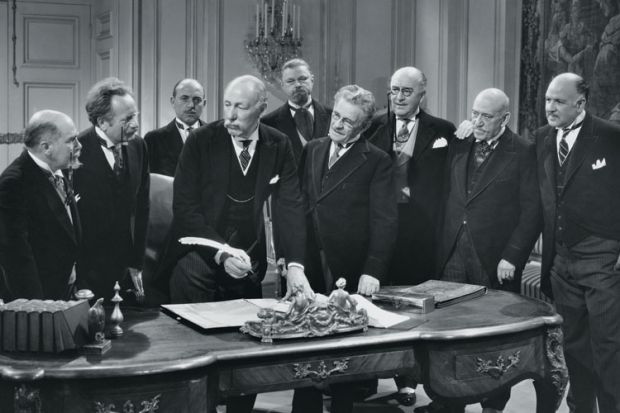As a bright girl who spent school holidays with her head in a book, I was given one piece of careers advice that has stuck with me ever since: never mind becoming a lawyer, a surgeon or a rocket scientist, become a teacher – as a woman, it will better allow you to balance work and family.
I’m sure I wasn’t the only girl to have been bestowed such wisdom and since the only professional women I came into contact with were teachers, it seemed to make sense – at the time, at least.
To get into practice for my future career, I would return home after each schoolday and sit my dolls and cuddly toys in a row so that I could impart on them all the knowledge that I had myself acquired. I was, without knowing it, honing my teaching skills. In fact, rewind precisely 27 years and I was giving each of my toys a carol sheet so that we could learn to sing along together.
Then, when it came to exam season, I would tape together sheets of A4 paper so as to form my own blackboard, learning my material by imagining that I was teaching it. As I later found out, there is no better way of learning than to teach!
With each passing birthday, the children I aspired to teach became a year older. That was until I reached secondary school. Here, bad behaviour in the classroom and schoolyard was the norm. Very soon, I began to rethink my options. And fast.
I was, for a while, in limbo. To teach or not to teach – that was the question. Then, as a sixth-former, I learned about the possibility of academia. Since neither of my parents (nor any of my grandparents) had been to university, this wasn’t a world of which I was aware. Growing up in a working-class mill town on the outskirts of Manchester, the idea of simply going to university was quite extraordinary – never mind making a career in one.
The academic world was a black box – it formed part of another world, where strange things went on which seemed, on the face of it, to have little bearing on the drudgery of our daily lives in east Manchester. You might think I exaggerate. After all, there was a distant relation who went to university in Wales. However, as we later found out, it was to be a cleaner rather than a student. Funnily enough, it was still seen as an achievement.
Once the black box of academic life was opened to me, I was re-energised.
In fact, you could say I had an epiphany. I realised that what I was busy learning between all the classroom disruptions was not set in stone and was certainly not the end point of our knowledge. It was, instead, a moving sea of knowledge, that researchers in some distant place were all the time adding to and shaping. The opportunity to combine teaching and research was mesmerising. I was hooked.
By this author: are bare-breasted feminists hypocritical?
Through some rather dodgy careers advice early on in my life, I had later managed to stumble upon an academic career path. Nevertheless, looking back, I’m left feeling a little bit exasperated. It’s not that there was anything wrong with the school teaching profession that was initially recommended to me.
A fantastic teacher truly is worth their weight in gold. What troubles me was that it was somehow acceptable to provide girls with careers advice that took into account “balancing” work and family – but not boys.
You would think that things have changed immeasurably since. Rather worryingly, that is far from being the case.
Take the British Social Attitudes Survey. When the British public were recently asked to consider the best way for a family with a child under school age to organise their life, only one in 10 people selected a working arrangement that involved a father and mother equally sharing responsibilities inside and outside of the home. Even among those aged 18 to 25, more than six out of 10 agreed that earning money is the man’s main responsibility in this situation, and that the women should spend relatively more time in the home.
Perhaps unsurprisingly, one recent survey of sixth-formers carried out by the University of Oxford revealed that boys focus much more on money than do girls when it comes to career choices.
As a society, we still tend to assume that women have responsibility for care-giving roles outside of the workplace, limiting a woman’s ability to match the performance of men in the labour market, leading to what has been termed an “unfinished revolution”. Where women have made progress, breaking through glass ceilings and moving onwards and upwards, it has been by following the male rulebook. Adapting themselves to a world that has been been built on the back of a male-breadwinner model of society: on the assumption that those in work can more or less forget about life outside of work, taking for granted that there is someone at home to look after everything else that comes with human life.
To succeed, women have had to effectively turn themselves into men. And, I’m afraid to say, that includes in the academic realm.
Read more: Why I refuse to 'think like a man'
If more women are to benefit from the gender equality that our society (in theory) prizes, it is time for the world of work – rather than for women – to do the changing. In the words of Saadia Zahidi of the World Economic Forum, “labour policy and business practices are often still designed for family and economic structures from half a century ago…That world no longer exists. Dual-income households are the norm. In addition, households headed by just one parent – often women – are also more present than ever before.” Here, not only does the private sector have some work to do, so does the university workplace.
While we might think of academia as being the home of progressive and liberal thinking, when it comes to eliminating the types of misogynistic practices that the private sector is already on the road to tackling, there is still a long way to travel.
The early advice I received – to become a schoolteacher – certainly wouldn’t translate into teaching at a university. Academia is often neither “women friendly” nor family friendly, something which has been pointed out by Mason, Wolfinger and Goulden in their book Do Babies Matter? Gender and Family in the Ivory Towers. The academic world still very much works on the basis of a (male) breadwinner model, one in which there is someone else at home to take care of all of the daily chores, allowing the earner to dedicate their life entirely to work – and not just during the day but in evenings and at weekends.
Some of the statistics relating to gender and academia are already well known. The University of Oxford, for example, recently attracted public criticism when a Freedom of Information request revealed that only 8 per cent of its highest paid staff were women. Across the UK, only 22 per cent of professors are female and, even those women who make the grade are often paid significantly less than their male colleagues.
That might help explain why universities have been slow to respond to the new world; to a world in which a woman and her modern male counterpart need to balance work with life outside. It is a world in which things will not continue to improve until the people at the top (who are mostly male) have rethought their relationship with work.
In her new role as director-general of the CBI, Carolyn Fairbairn has begun to draw attention to precisely the kind of practices which disadvantage women – practices which are all too often taken for granted, that are just “the way it’s always been”. That includes the traditional business dinner. You know, the one where a man could stay out all hours taking for granted that his wife would be at home to get the children ready for bed.
Not only has the business world traditionally been one of commitments such as this, so has academic life.
Even today, dinners at High Table form part of the stereotypical life of an Oxbridge don. When it comes to academic practices such as this, the chasm between traditionalist fellows and some of the new generation of younger fellows – both female and male – could not be greater.
What the new generation expects from the workplace is very different to what past generations had in mind. However, being in a minority, and being junior, younger voices, and that includes many female voices, are just not heard frequently enough. Sometimes I feel we are simply expected to feel indebted to our institution, thankful for our job in what it is an immensely competitive academic world. That’s hardly a recipe for facilitating change, or for academia keeping up with society.
Commitments in the evenings and at weekends, whether in the form of dinners or seminars, are, for example, standard practice – at least at the universities I’m familiar with, Oxford and Cambridge. Then there is the added extra that is the academic conference.
I am simply astounded by the number of conference emails that land in my inbox that, when you check the dates, fall on weekends – including numerous top conferences in my own field of study.
Have those in charge not realised that the modern man and woman have lives outside of work? OK, we might not all have children, but we do have other things to be getting on with. Work is not our entire life – at least not the kind of academic work that counts for the research excellence framework. This article being a prime example of what we might want to get up to in our “leisure” time.
As a graduate student and young researcher, I was happy to accept traditional academic practices. I felt that speaking out would not be good for my career and that I should be grateful for my job at Oxbridge. Now I’ve realised that we can’t afford to just sit around and wait for someone else to bring change about.
We are losing talent, particularly female talent. As Mary Ann Mason and her colleagues have shown, there is a significant “baby premium” for women in academia, one which can mean that female academics drop out, take a back seat or have to make serious sacrifices in order to reach the very top.
By this author: Is economics sexist?
More needs to be done to tackle such issues in the workplace. As an economist, however, I'm well aware that greater competition on one side of an exchange can mean that things are slow to change and that “inefficiencies” go unaddressed: if top universities were having to really compete with each other in the same way that candidates have to fight with each other for jobs, we might have been further down the road by now. Institutions would have had to introduce change in the workplace in an effort to attract the best people. Instead, they get away with trading on their historic reputation and taking advantage of the fact that academics don’t have that many options in terms of places to work.
Of course, in some departments and in some universities change is happening. New heads of department have, at times, taken the opportunity to introduce ground rules, such as making sure that scheduled academic activity falls within the working day. If people want to work in the evenings and weekends, they are entirely free to do so (I very often do myself), but, it is entirely flexible.
Sadly, such ground rules are still far from universal – and, where they are in effect, they need to be supported by initiatives at the university-wide level, and across universities. Relatively little can be done, for example, from the inside to tackle the scourge of those externally organised weekend conferences.
Much more still needs to be done to end practices in academia that have their roots in a bygone age – an age of the male breadwinner. Universities should not be oblivious to the type of workplace revolution that is being encouraged in the private sector.
They should be leaders rather than followers, particularly if they are to attract and retain the kind of minds that fuel the fire of research. Supporting this talent in the way that is in keeping with the modern world should be our core aim – not sticking to traditions for the sake of it, or because “that’s the way it has always been”.
So, to get things rolling, join me with hashtag #endweekendconferences and let’s hope that we are pushing on an open door.
Victoria Bateman is an economic historian and fellow in economics, Gonville & Caius College, University of Cambridge, and fellow of the Legatum Institute, London.
Register to continue
Why register?
- Registration is free and only takes a moment
- Once registered, you can read 3 articles a month
- Sign up for our newsletter
Subscribe
Or subscribe for unlimited access to:
- Unlimited access to news, views, insights & reviews
- Digital editions
- Digital access to THE’s university and college rankings analysis
Already registered or a current subscriber? Login




